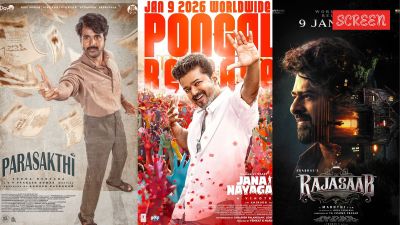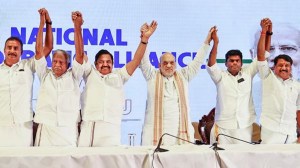Countdown to the Asian Century
A book so well-intentioned deserved a better title. The one it carries seems to have come from a tabloid sub-editor, running out of time and...

A book so well-intentioned deserved a better title. The one it carries seems to have come from a tabloid sub-editor, running out of time and inspiration. For this is not, in truth, a book about whether Asians can think 8212; a question that might appear desperately provocative 8212; but an examination of whether they can succeed economically, regain their place in the sun and redeem the space surrendered to the West over the past four centuries.
Kishore Mahbubani argues they can. As a philosopher by training, he is ruthless, taking apart western duplicity, your feelings be damned. As a Singaporean diplomat by profession, his tact sometimes takes over, gently cajoling you to listen, even if you disagree completely. But forget the tactical nous. This book is worth the price on its cover because he is not afraid to tout the unpopular. The earnestness with which he argues his case suggests that he is doing so because he believes in what he is saying.
| nbsp; | To Kishore Mahbubani, it makes little sense for the West to transplant its own unadulterated model of human rights and democracy if the potential fallout is strife and chaos |
Mahbubani8217;s concern is largely with Asia and where it stands vis-a-vis the West. He believes, for example, that although Asia virtually sat still while it was comprehensively overtaken by the West over the past few centuries, the 21st Century will mark another turning point. He believes we are entering an age when Asia will rediscover itself and the West has been blinded 8212; either by hubris or complacency or by having believed its own propaganda. He believes though he puts it far more elegantly that it is payback time. And then the diplomat in him goes on to add that he is a great admirer of the West. That has not stopped him from ridiculing the 8220;western way8221;. He points to the West8217;s obsession with democracy but wonders whether political freedom should precede economic development. 8220;The crucial variable in determining whether a Third World society will progress is not whether its government is democratic but, to put it simply, whether it has good government,8221; says Mahbubani. To him, a good government is one that provides political stability, a relative lack of corruption and economic growth. The author argues that it makes little sense for the West to transplant its own unadulterated model of human rights and democracy if the potential fallout is strife and chaos.
Mahbubani then points out the obvious, if unfashionable, truth that the western notion of democracy can be flexible, depending on whether western interests are at stake. Many of the essays in this book were written before 9/11 and the Saddam saga. If anything, that only strengthens the force of some of his arguments, which have been validated by recent events.
While he uses examples of a different vintage, Musharraf springs to mind when he says countries like the US will trade principles for pragmatism when it suits them. And the 8220;freest press in the world8221;, the one that fights for the underdog, stands up for the truth and challenges the establishment, is not above playing its assigned part in this charade. 8220;During Tiananmen, western journalists would lunch with a student on hunger strike before reporting his hunger,8221; writes Mahbubani. His point: In 1972, when Nixon landed in China, the same western press had a love-fest with a regime that had killed millions during the cultural revolution. But in the 8217;90s, a much more benign administration was painted as the Bad Guy. So while the West believes its half-truths, some cynicism may help the others. The questioning gaze of an equal is replacing the wide-eyed admiration of the follower.
That strand unites this candid collection. He is not afraid to criticise the supposedly-clashing civilisations, and he does so with the air of a man who has no wares to sell, no secrets to hide. 8220;This does not represent the views of the Singapore government,8221; clarifies the man who8217;s been its ambassador to the UN.
Mahbubani may genuinely believe this, but it is only half-true. Like his government, the author believes in a free market, distrusts the advice of a press with no stakes and is proud of what East Asia has achieved. His self-crafted commandments for developing countries carry a distinctly Singaporean ring. Sample this: 8220;Thou shalt not subsidise any products8221; and 8220;Thou shalt be humble while developing and not lecture the developed world on their sins8221;. The Temasek brand is stamped all over such pronouncements. That does not make them wrong. It only explains where the author is coming from.
- 01
- 02
- 03
- 04
- 05































